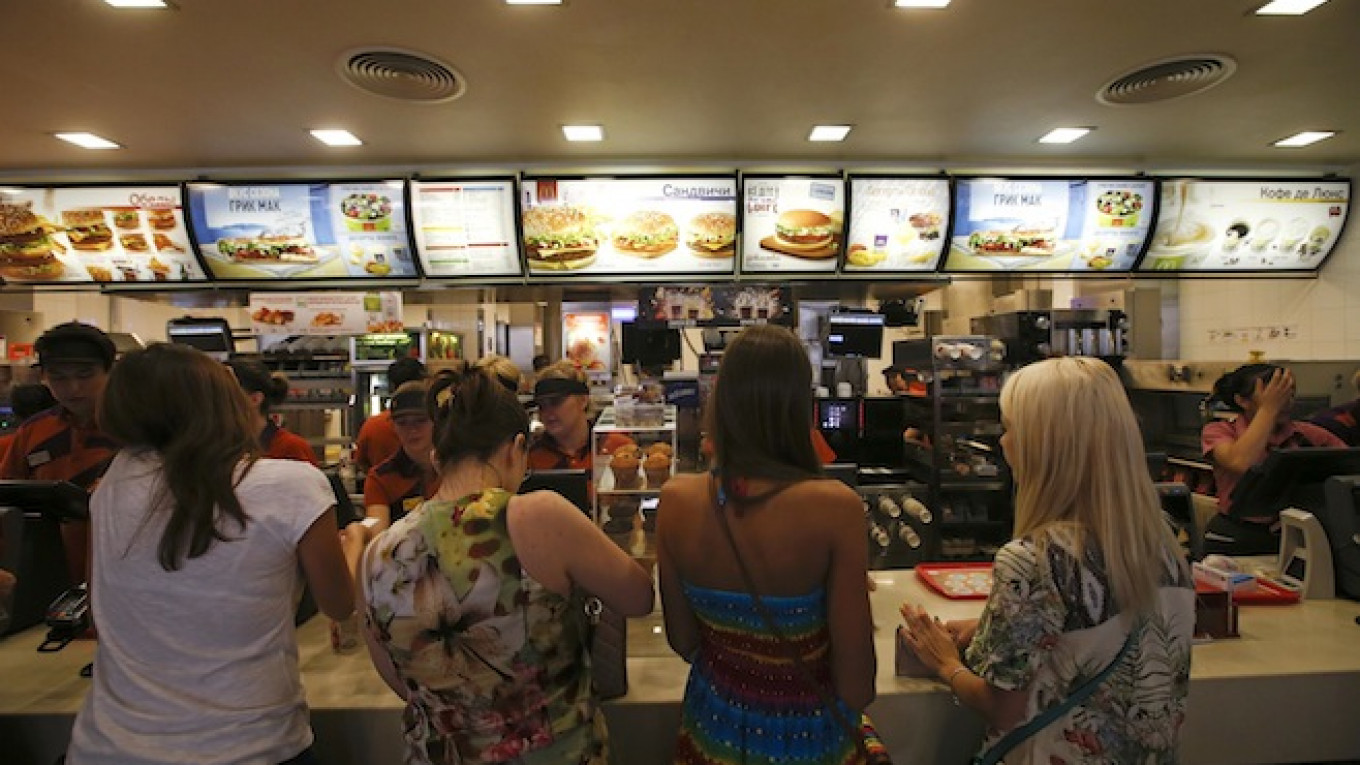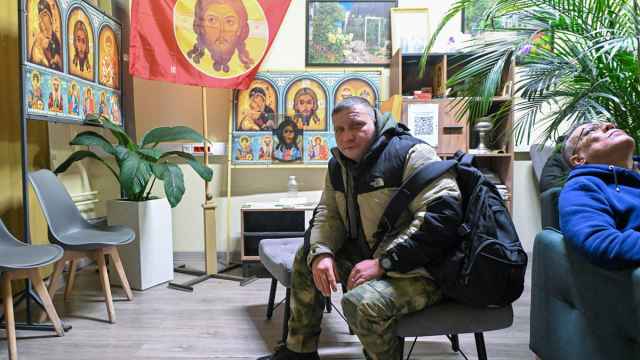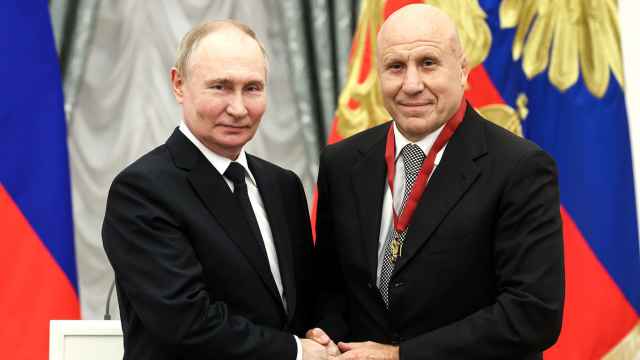Moscow's sweeping sanctions on European and U.S. food have left the supply chain of Rosinter, one of Russia's largest restaurant chains, in tatters and raised concerns for the future, chairman Rostislav Ordovsky-Tanaevsky Blanco said.
Russia banned all U.S. and EU meat, fish, dairy, fruit and vegetables last month in a tit-for-tat response to Western sanctions imposed over Russia's actions in Ukraine, meaning that Rosinter must find alternatives for 30 to 40 percent of the food supplies to its 323 Russian restaurants.
Rosinter's main brands are Planet Sushi and Italian chain Il Patio, but it also operates the Russian franchise of T.G.I. Friday's and a McDonald's franchise.
"The logistics have been completely destroyed," Ordovsky-Tanaevsky Blanco said. "We'll need to wait at least three months to understand what the new reality is like."
Rosinter's chairman and founder said he had no plans to sell the business, but he expressed concern about the long-term impact of the standoff between Russia and the West.
"When a crisis is political, there is confrontation. You begin to worry about the future," he said.
Russia has closed 12 McDonald's restaurants temporarily and is inspecting 100 more across the country for breaches of sanitary rules in a crackdown Russian businessmen have said is linked to the crisis in Ukraine and the soured relations between Russia and the U.S.
"The McDonald's checks coincided with the sanctions period. I think the majority of restaurants will be fine. And the small number of violations that are confirmed, McDonald's will fix them and move on," Ordovsky-Tanaevsky Blanco said.
The majority of the 440 McDonald's restaurants in Russia are self-operated and Rosinter is its only Russian franchisee, with a mandate to open restaurants at airports and railway stations.
"I hope this [the inspections] will not be directed at us," the Rosinter chairman said. "We aren't changing our plans; we're holding talks with several airports on opening McDonald's restaurants, but we're waiting until the end of the year to confirm our development plans."
The sanctions come at a tough time for Rosinter's Russian business, with many restaurants struggling to turn a profit at a time when the economy is at a standstill.
"Although we're still only in the third quarter, the year is turning out to be a very tough one for restaurateurs. Since the third quarter of 2013 there's been a feeling of slight stagnation," Ordovsky-Tanaevsky Blanco said.
The ruble, meanwhile, is trading near record lows against the dollar and has brought a sharp rise in the cost of imported supplies.
"Restaurants will close. It's too early to say how many," Ordovsky-Tanaevsky Blanco said.
Rosinter, which also operates 26 restaurants in Belarus and Kazakhstan and a further 20 in Eastern Europe, posted a 4.4 percent year-on-year fall in first-half revenue to 4.5 billion rubles ($120 million) in August.
A Message from The Moscow Times:
Dear readers,
We are facing unprecedented challenges. Russia's Prosecutor General's Office has designated The Moscow Times as an "undesirable" organization, criminalizing our work and putting our staff at risk of prosecution. This follows our earlier unjust labeling as a "foreign agent."
These actions are direct attempts to silence independent journalism in Russia. The authorities claim our work "discredits the decisions of the Russian leadership." We see things differently: we strive to provide accurate, unbiased reporting on Russia.
We, the journalists of The Moscow Times, refuse to be silenced. But to continue our work, we need your help.
Your support, no matter how small, makes a world of difference. If you can, please support us monthly starting from just $2. It's quick to set up, and every contribution makes a significant impact.
By supporting The Moscow Times, you're defending open, independent journalism in the face of repression. Thank you for standing with us.
Remind me later.






